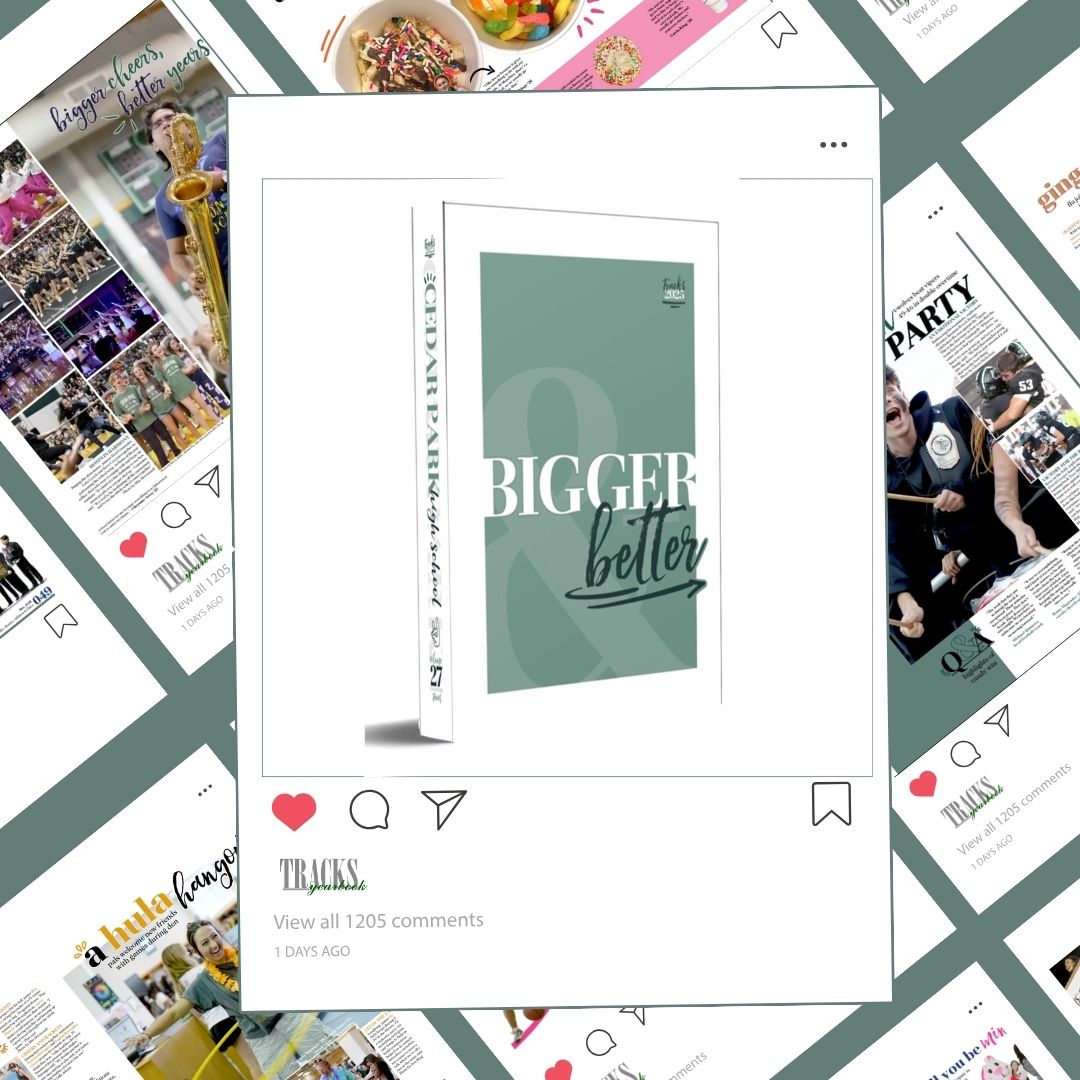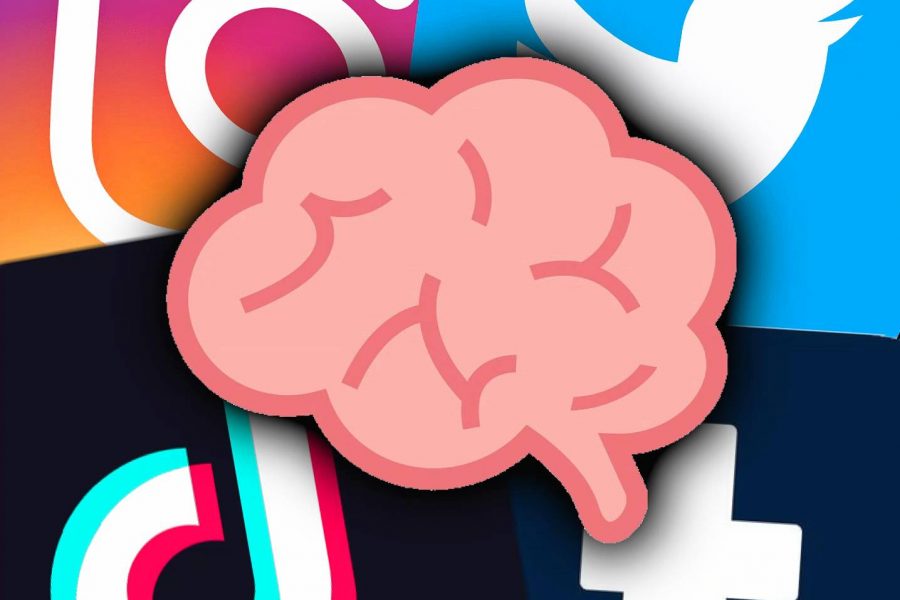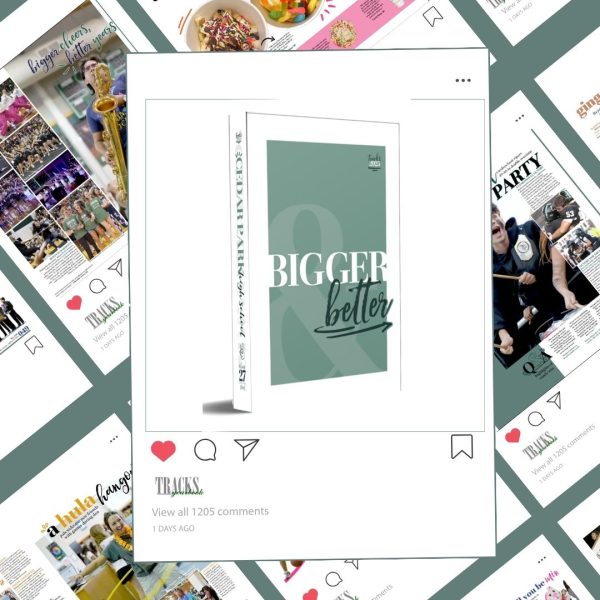Gen-Z Romanticizes Mental Illness, it’s not Good
Common Discussion of Mental Illness Online can Influence Teens Views
Social Media has a great impact on how people, especially teens, perceive mental illness.
December 17, 2020
Gen-Z has brought a lot of awareness towards mental health and mental illnesses and brings great efforts towards normalizing them. But there’s a major problem that has appeared. In the effort to destigmatize mental illness, we have created a society where it’s romanticized.
In today’s society, creating a new normal is a common goal. In the past, people were scared to admit they had depression or anxiety. But recently, the shame associated with mental illness has dissipated, but that’s exactly the issue. Having anxiety attacks is deemed as a quirky character trait and suffering from depression adds some spice to life. However, mental illness can have a serious impact on someone’s life and can be hard to speak about. And to make matters worse, it can now be harder to admit when there is so much stigmatized glamour around it.
Television has a history of including characters that deal with mental illness, usually being characterized as violent, dangerous or unstable. Recently, there are more accurate representations of mental illness, such as in “Shameless” and “This Is Us,” but some just don’t meet the mark. The controversial “13 Reasons Why” is an example of a bad representation of mental illness. Not only was there minimal mention of a mental illness, but the main character’s suicide was also framed as revenge. This can be harmful because 90% of those who’ve died of suicide had an underlying mental illness, according to NAMI. This can affect the minds of kids tremendously, giving them a false depiction of what suicide is and what has to happen to lead up to suicide.
Music is a significant factor in romanticizing mental illness as well. Billie Eilish is an artist who is known for her questionable and angsty lyrics that can affect impressionable teens in the worst way. With lyrics such as “I wanna end me” in “bury a friend,” the depressive mantra can leave a negative effect on her listeners. Rather than accuse Eilish of profiting off young teens or state she is in as a cause of the romanizations, it’s safe to say that her broad fanbase reveals this generation’s trend to romanticize mental health disorders. The portrayal of suicide and depression as tragically beautiful in such poetic lyrics is dangerous because it only inspires teens to desire and glorify mental illness.
Social media plays a big part in the romanticization of mental illnesses. A platform where it is a problem is Tik Tok. Mental health is a big topic among users, but there are times where mental health gets portrayed incorrectly. Falsely depicting mental illness can become an issue when it detracts from the seriousness and depth of it. People downplay the importance of their mental illness and it can make mental illnesses seen as glamourous or desirable. Self-harm, panic attacks and thinspo are made out to be admirable in spaces such as “edtwt” (eating disorder twitter) for example. Social media can compromise someone’s mental state when harmful ideals are encouraged. Mental illness affects different people in different ways, but it’s not something to glorify on the internet.
Other social media platforms also allow unfiltered discussion of mental health problems. While it can help people feel not alone, these discussions can lead to harmful topics. Living in the technology age, it’s getting harder and harder to prevent young teens from seeing these discussions or images. Images or mentions of self-harm get often brought up in these conversations, and it can influence people into thinking harming themselves is an effective way to reduce the pain. While awareness should be brought towards self-harm, direct exposure to it isn’t the right way.
The sensationalism of mental illness takes away the focus from the real struggles. The problem is that people aren’t asking for help because their issue is seen as a trend, and they’re following the crowd. That false idea of mental illness can make sufferers who reach out, not get taken seriously.
As society moves forward, it’s important for the glorifying and normalization of mental illness to stop. Now don’t get me wrong, mental illness should be normalized but not as in “everyone has one,” but as in “you are not alone.” We as a society should bear in mind that destigmatizing mental illness shouldn’t cross the line into romanticizing it.
I recommend the following resources and social media pages that can help with mental illness and mental health.

![Posing with their UIL State Trophy, the Robolobos Van Halen Team beams with excitement after their win. “It was a team effort,” junior Noah Vo said. “I was happy because something happened in the first match and the match was also really close. So [when] they finally revealed it, I was pretty happy.” Photo courtesy of Amy Lovelace](https://cphswolfpack.com/wp-content/uploads/2025/05/IMG_0910-EDIT-1200x723.jpg)

![Broadcast, yearbook and newspaper combined for 66 Interscholastic League Press Conference awards this year. Yearbook won 43, newspaper won 14 and broadcast took home nine. “I think [the ILPC awards] are a great way to give the kids some acknowledgement for all of their hard work,” newspaper and yearbook adviser Paige Hert said. “They typically spend the year covering everyone else’s big moments, so it’s really cool for them to be celebrated so many times and in so many different ways.”](https://cphswolfpack.com/wp-content/uploads/2025/05/edited-ILPC.jpg)













![Bringing her arm over her head and taking a quick breath, junior Lauren Lucas swims the final laps of the 500 freestyle at the regionals swimming competition on date. Lucas broke the school’s 18-year-old record for the 500 freestyle at regionals and again at state with a time of 4:58.63. “I’d had my eye on that 500 record since my freshman year, so I was really excited to see if I could get it at regionals or districts,” Lucas said. “ State is always a really fun experience and medaling for the first time was really great. It was a very very tight race, [so] I was a bit surprised [that I medaled]. [There were] a lot of fast girls at the meet in general, [and] it was like a dogfight back and forth, back and forth.” Photo by Kaydence Wilkinson](https://cphswolfpack.com/wp-content/uploads/2025/03/Kaydence-2.7-23-edit-2.jpg)
![As the support team sits and poses for a photo in the cafeteria with the counseling team they eagerly wait to start their day. "We [all] seem to be a team, I get up every day and there's days where I don't want to go to work today, but I'm thankful that I have a job and I'm blessed to have what I have," Christopherson said. Photo Courtesy of Julie Weltens.](https://cphswolfpack.com/wp-content/uploads/2025/01/AF9E8470-10D7-4C91-BF28-EC8F86BAB66C-1200x852.jpeg)
![Officer Stephanie Cash is in her second year as an SRO at CPHS. “Seeing [students] grow over the years has been kind of cool,” Officer Cash said. “Freshmen that [are] all over the place and then in the next couple of years get a little more squared away and go to class and do work and start thinking about the future. Being a part of a student's growth is the best way to measure my success as an SRO.” Photo Courtesy of Cedar Park Police Department's PIO, Alicia Gallagher.](https://cphswolfpack.com/wp-content/uploads/2024/12/CPHS-SRO-900x1200.jpg)



![Taking a breath as he raises his arm up and out of the water, sophomore Kaden Padilla swims the 500 freestyle at the UIL state meet on Feb. 21-22. Padilla placed 10th overall and second in the consolation final in the event, dropping two seconds. “My family was there, so being able to drop time for them was really special,” Padilla said. “It was awesome [finding out I advanced to the consolation finals]. I wasn’t expecting it, and I was very surprised. My parents being there definitely made me a lot happier knowing they got to see me swim in finals.” Photo by Skyler King.](https://cphswolfpack.com/wp-content/uploads/2025/03/kaden-padilla.jpg)

![Three defenders try to stop senior point guard Hope Edwards before the ball leaves her hands. The girls basketball team faced Liberty Hill on Feb 21, losing 58-40. “[My season was] definitely bittersweet,” Edwards said. It's definitely sad [because] I'm gonna miss all my teammates, my coaches and just the whole CP environment.”](https://cphswolfpack.com/wp-content/uploads/2025/03/julia-128-1200x800.jpg)

























![Whereas classical art depicts a scene and tells a story, often of mythology or religious references, artists of modern times focus more on expressing ideas and feelings. The style of back then has since been replaced by splashes of color, curvy lines and other new art techniques. "[Over time] I think art has shifted more to emotion rather than human beauty, " sophomore Braeden Murray said. "Modern art is significantly more abstract and doesn't have an obvious theme in mind. Very simple shapes, no people to be seen, and more colorful. I think in the older [time period] the art was definitely more human based, with biblical [references] while modern art is more emotion based because it's not depicting a particular scene or action that's happening.”](https://cphswolfpack.com/wp-content/uploads/2023/02/2023-vs-1503-300x200.png)






Alexander • Feb 13, 2025 at 9:41 am
Used this artical to help make my informative speech for a competition, great artical!
Loshini • May 3, 2021 at 10:51 am
This is such an eye-opening article! Did a presentation for my class using your points, thank you>